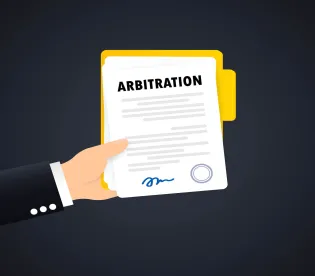Since its enactment in 2010, California’s Automatic Renewal Law (ARL) has motivated an ever-increasing number of putative class action complaints. The latest surge is due in large part to amendments that went into effect last summer that add to the statute’s requirements for businesses offering goods or services on a subscription basis. These amendments introduced specific requirements for online subscription termination options, as well as for the timing and content of reminder notices to be sent before term expiration. While less rigorous in some respects, Colorado, Delaware, Illinois, Idaho, and Virginia also enacted similar statutes that, in turn, mirror several requirements of the federal Restore Online Shoppers Confidence Act (ROSCA).
For businesses with subscription models or offerings, compliance with dynamic regulatory schemes can prove a moving target, particularly when even minor technical noncompliance exposes a company to costly litigation. Added protections like arbitration agreements with class action waivers may help to reduce the risk of expensive class action complaints, but only if properly implemented. The cases below illustrate key issues that courts have recently considered when determining whether to enforce such arbitration provisions.
Sellers v. JustAnswer LLC
The caselaw relating to the enforcement of arbitration clauses and class action waivers in the ARL context continues to develop, with the California Appellate Court’s decision in Sellers v. JustAnswer LLC, 73 Cal. App. 5th 444 (2021) setting the stage. Sellers employed the concept of constructive notice—requiring that the arbitration and class action waiver terms were “sufficiently conspicuous”—in determining that those provisions were enforceable. In arriving at its decision, the Sellers court distinguished among the varying types of internet contracts:
Scrollwrap – Users are presented with the entire agreement and must physically scroll to the bottom of it to find the “I agree” or “I accept” button.
Clickwrap – An agreement that requires users to accept a website’s terms by clicking a button, with a link to the agreement readily available.
Browsewrap – Users accept a website’s terms by simply browsing the site.
Sign-in Wrap – A hybrid of clickwrap and browsewrap in which users are advised that by using the website, signing-in, or creating an account, they are agreeing to the contract, which is usually available by hyperlink.
Each of these agreements provides users with varying degrees of notice (scrollwrap the most, browsewrap the least). Sellers was the first California decision regarding the enforceability of a sign-in wrap arbitration agreement, using criteria like the size, color, contrast, and location of the text and hyperlinks to gauge the contract’s conspicuousness. The court placed great emphasis on the “transactional context” of the agreement and acknowledged that in circumstances where a relationship is forward-looking, like a monthly membership, the consumer is more likely to review key contractual terms.
Sellers’ Progeny
Several state and federal cases following Sellers have clarified its holding. In B.D. v. Blizzard Entm’t, Inc., 76 Cal. App. 5th 931, 946 (2022), the same appellate district determined that consumers need not “expressly manifest their assent to [the terms of use] by checking a box or clicking an ‘I agree’ button. Instead, the consumer is purportedly bound by clicking some other button that they would otherwise need to click to continue with their transaction or their use of the website[.]” Thus, “the consumer’s assent is largely passive, and the existence of a contract turns on whether a reasonably prudent offeree would be on inquiry notice of the terms at issue.” Id.
California district courts continually find sufficient notice for sign-in wrap agreements where the checkout pages contain disclosures above or below the “Place Your Order,” “Create Your Account,” or “Continue” button stating, “I accept and agree to your Terms of Use Agreement” or “By placing an order, you agree to our Terms and Conditions.” In each of these cases, the phrase “Terms of Use” is displayed as a colored hyperlink that directs users to the terms, which include an arbitration agreement. See Karim v. Best Buy Co., No. 22-CV-04909-JST, 2023 WL 3801909, at *5 (N.D. Cal. June 2, 2023); Hooper v. Jerry Ins. Agency, LLC, No. 22-CV-04232-JST, 2023 WL 3992130, at *4-5 (N.D. Cal. June 1, 2023); Capps v. JPMorgan Chase Bank, N.A, No. 2:22-cv-00806-DAD-JDP, 2023 WL 3030990 (E.D. Cal. Apr. 21, 2023).
These cases follow a string of federal California precedent, including the recent Ninth Circuit case Oberstein v. Live Nation Ent., Inc., 60 F. 4th 505, 516-17 (9th Cir. 2023), which deemed a website’s terms sufficiently conspicuous because they were distinguished from the surrounding text, located directly adjacent to the action button, and the underlying transaction required a full registration process before the transaction would proceed.
Upshot
Taken together, these cases can be read to provide a blueprint for an enforceable arbitration agreement and class action waiver in the ARL context.
Scrollwrap agreements provide the greatest protection. Requiring users to scroll the length of an agreement then affirmatively click “I agree” is a form of consumer notice that can provide a greater degree of certainty with respect to the enforceability of its terms. Clickwrap and sign-in wrap agreements are also viable options that may afford the consumer a more seamless user interface while still providing sufficient notice under applicable ARLs.
Ultimately, courts view the circumstances of the transaction in their totality to determine the sufficiency of notice. The Sellers factors like font size, color, contrast, and location inform the calculus, as does the context of the transaction. Recent authority signals that use of a purchase button itself may be interpreted as a form of consumer consent to an underlying set of terms, so long as they are proximally and conspicuously noticed and the express terms are readily accessible (for example, by use of a hyperlink).
Businesses offering goods or services to California consumers on a subscription basis should consult with knowledgeable counsel to develop or seek the enforcement of their arbitration agreements and class action waivers.






 />i
/>i

